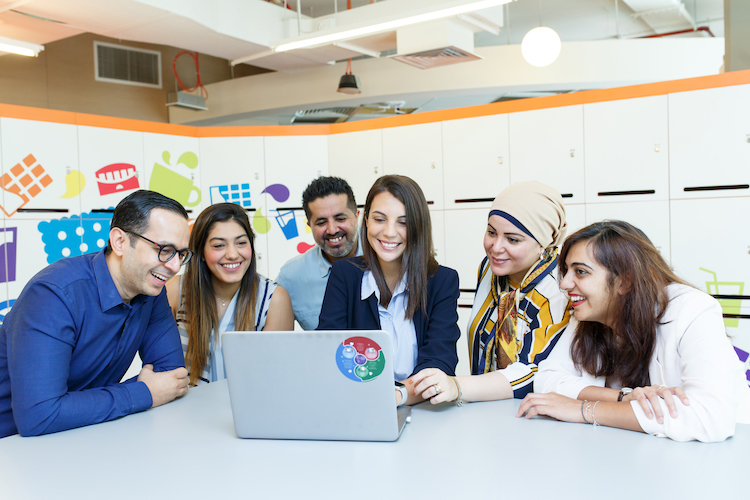- /
Discover the importance of diversity in the workplace and learn how Mondelēz International encourage a culture where everyone can be themselves.
Monday, March 01, 2021
Diversity and inclusion have been a focus for many companies for years now, and they have become more and more of a trending topic with a rise in awareness amplified by headlines and online influencers such as #MeToo movement.But what do the terms mean, and why do they matter?
Workplace diversity means understanding, accepting and valuing differences between people, including differences in gender, age, race, ethnicity, religion, disability and sexual orientation. It also includes differences in education, experience, knowledge, skill set and personality. Each individual in an organization brings a diverse set of perspectives and experiences, and the power of this diversity can only be realized when we recognize these differences and learn to respect and value them.
Inclusion means welcoming and respecting the diverse background of each individual employee by creating a positive, supportive and respectful working environment that encourages all employees to engage and participate.

The Benefits of Being a Diverse and Inclusive Company
- Employee engagement
When people feel valued and empowered, they are more likely to be engaged at work and function at full capacity. In a culture of diversity and inclusion, motivation and morale are high as employees feel like they are a part of the company’s mission.
- Talent & acquisition
According to a Glassdoor survey, 67% of job seekers said a diverse workforce is important when considering job offers. Diversity in the workplace boosts a company’s image and makes it a more desirable place to work.
- Staff turnover
Workplace diversity doesn’t just make it easier to hire, it also encourages them to stay. When employees feel valued and accepted at work, they are also likely to feel happier and therefore more likely to stay in the company for longer. Research from Deloitte found that 72 percent of employees surveyed would leave their company for a more diverse and inclusive organization. As a result, companies with greater diversity in the workplace have higher employee retention.
The Benefits of Working in a Diverse and Inclusive Workplace
- Personal development
Working in a diverse and inclusive workplace means you’ll be exposed to a wider range of opinions, ideas and skillsets. You will regularly be opening your mind to different ways of thinking and working with people from a diverse range of backgrounds, which will help you to develop your soft skills, particularly your interpersonal skills, your curiosity and your adaptability. You’ll also be more likely to learn new skills from your colleagues.
- Innovation and creativity
Diversity promotes creativity, since people from different backgrounds tend to have different perspectives to bring to the table. When you work with a wide array of people who see things in different ways, you are more likely to come up with innovative and fresh ideas, and who doesn’t want to work for a company that promotes innovation and pushes boundaries?
- A sense of belonging
An employer who values and celebrates diversity in the workplace will actively create a welcoming and supportive culture. This means you can be your true self, with the comfort of knowing you’ll be accepted no matter who you are or what your background is. Feeling appreciated and supported at work is important for your sense of wellbeing and will improve your levels of job satisfaction.

How to Promote Diversity and Inclusion
Whether you’re an employer or an employee, you can help to promote and support diversity and inclusion in the following ways:
- Be aware of unconscious bias
Building awareness is the first step towards change. One way to build awareness is to encourage your employees and colleagues to review and analyze their own unconscious biases using the Harvard Project Implicit test. Once these unconscious biases become conscious, you can start addressing and tackling these.
- Diversity and Inclusion training
Diversity training helps people to understand how cultural differences can impact how people work and how people interact at work. It can cover a range of topics, from communication styles and dealing with conflict to self-identity and concepts of time.
- Acknowledge holidays from all cultures
If you’re in a team of people from different cultures and religious backgrounds, it’s important to acknowledge and celebrate upcoming holidays that might be important to them. Keep track of these days and be respectful of them when arranging meetings.

At Mondelēz International, we are committed to creating and sustaining a workplace where differences are valued and where everyone can be themselves. Find out more about our Diversity and Inclusion strategy, and why Mondelēz is an Empowering Company to work for.